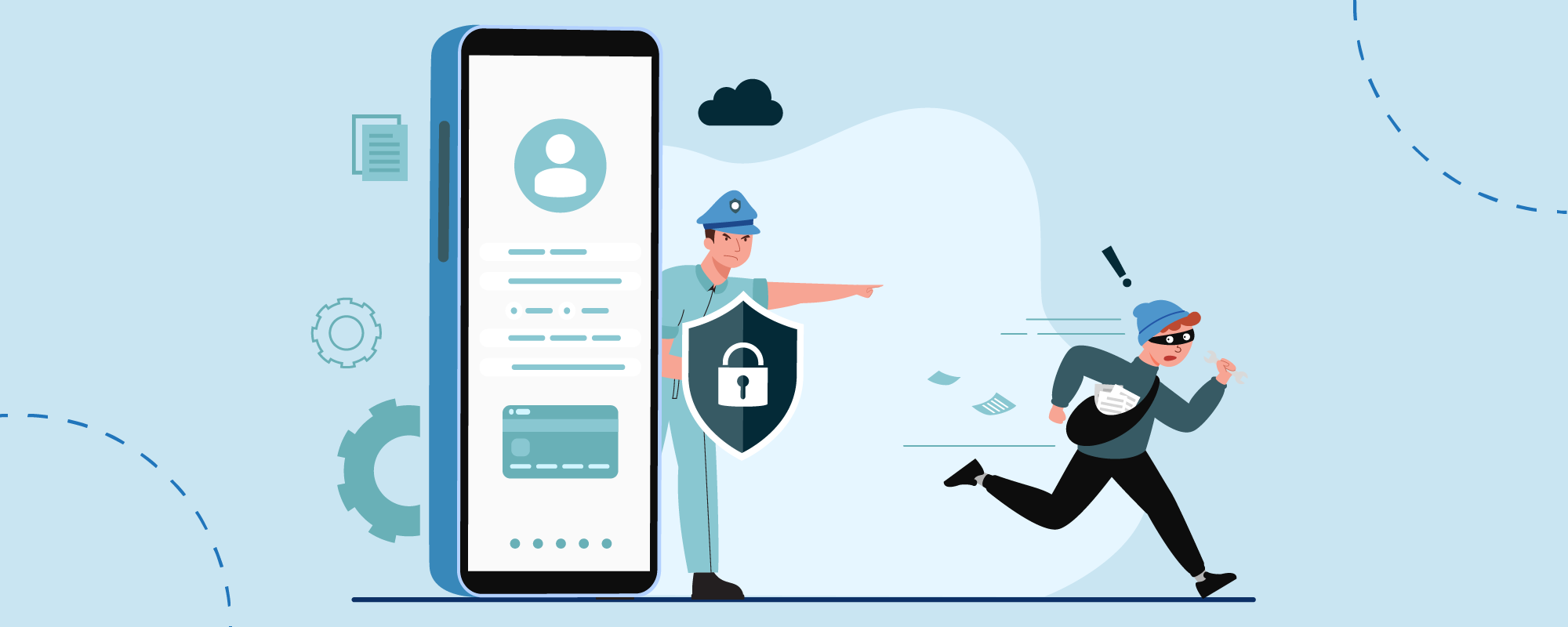
Improve Your Mobile Security
It’s pretty cool that we get to carry teeny tiny computers around in our pockets.
While it feels like smartphones are nothing new, it’s been less than 15 years since the first iPhone launched. And yet, it feels like a limb is missing when we misplace our phones these days.
One of the greatest perks of the wide adoption of smartphones is that they made it significantly easier for us to adapt to remote working environments. With their mobile devices, remote employees can check their emails on the go, use a hotspot to get WiFi wherever they are, and communicate with coworkers through an app.
The downside?
Protecting your privacy on your mobile devices can be difficult. And when remote employees have sensitive information saved on their phones, device security is absolutely essential.
Here are some ways to boost your mobile device’s security.
Employ a Password Manager
You’ve probably already heard that the best passwords are complex, non-sensical passwords. But keeping track of a different intricate password for every account you have is frustrating.
The happy medium is using a password manager. Password manager apps encrypt your account login information and can even generate strong passwords for you.
Invest in a VPN
Most people assume that VPNs only work for desktops, but many offer protection for mobile devices as well. If you prefer to connect your smartphone to public WiFi instead of mobile data, a VPN will create a private encrypted connection to browse safely. Learn more about VPNs in this article.
Check App Permissions
Most apps don’t need your contact list or location. Some do—Postmates and Uber need to know where you are to deliver your food or pick you up. But if an app asks you for permission for something that it shouldn’t need, like your location or other information stored on your phone, delete it right away.
Do Some Sleuthing
If you’re working with an app that will store your personal information or sensitive data, you must research the app before entering your information. Simply running a google search for “[app name] data scandal,” “[app name] data breach,” or “[app name] scam” can save you from the heartache of compromised information.
Keep Your Software Up to Date
Once that nudge pops up to tell you that an update is available, take the time to update your smartphone. Often, software updates are created to patch holes, and the longer you wait to fix that hole, the more likely it is that a cybercriminal will sneak through.
Only Download Apps from Official App Stores
If you have an iPhone, only get apps from the Apple App store; if you have an Android, only download apps from the Google Play store. While not every app in the official store will be 100% reliable, the official stores vet the apps for quality and specific level of data protection. Downloading apps from the Internet increases your risk of cybercrime.
Lock Your Phone
You probably already require a password or use a form of biometric security to protect your phone. But if you don’t, take this as a sign that it’s time. A short little passcode won’t kill you, but if your unlocked phone is stolen, you’re going to regret not setting up a password sooner.
About SiteSpot
SiteSpot is a website management system that makes writing, designing and maintaining your site a breeze.